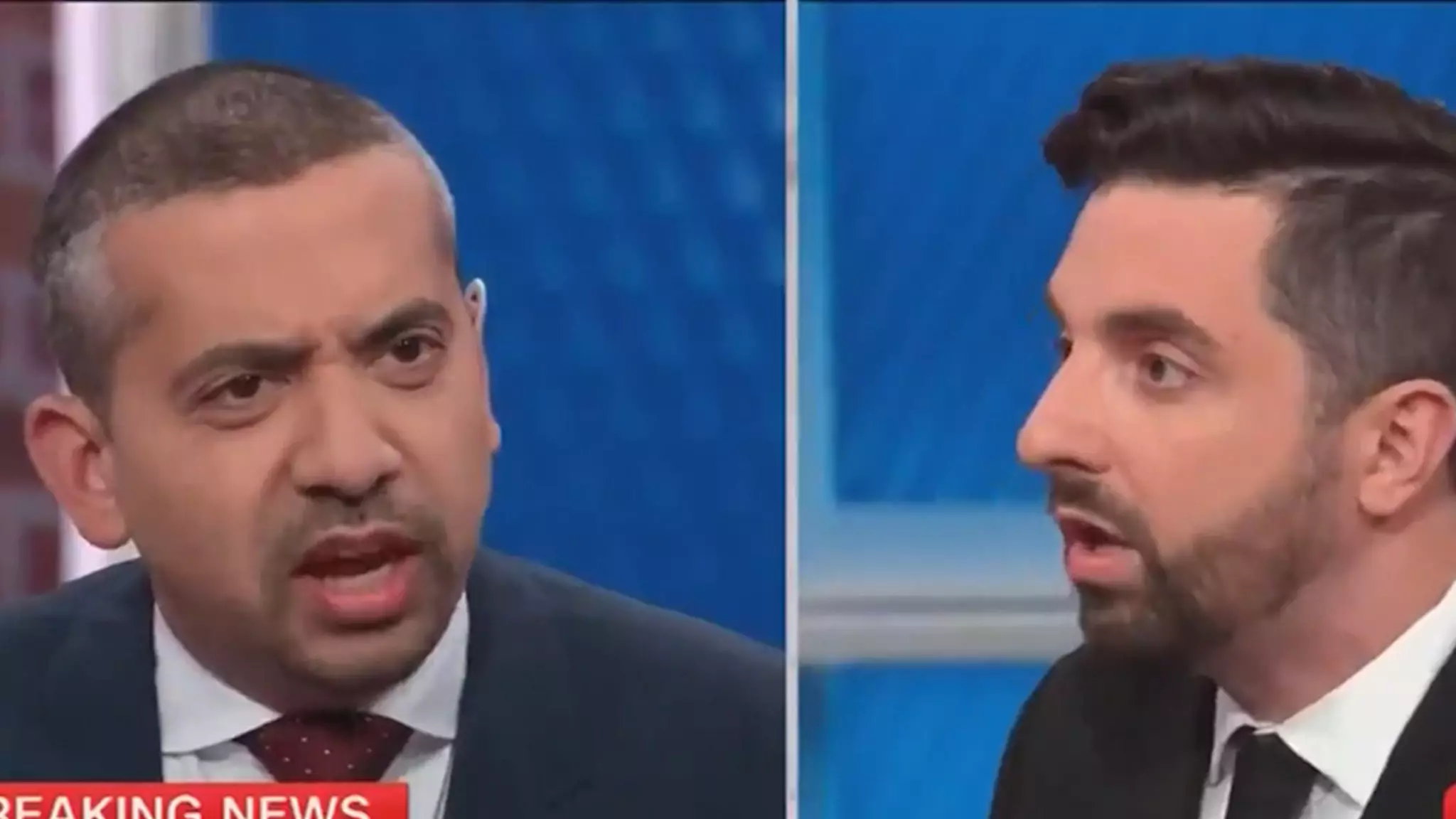On a recent episode of “NewsNight With Abby Phillip,” the political commentator Ryan Girdusky found himself embroiled in controversy due to a remark that many perceived as offensive. His comment, described as a “beeper” joke directed at fellow guest Mehdi Hasan during a heated discussion about antisemitism and Middle Eastern political issues, ignited a firestorm of backlash both within the studio and among the viewing audience. The resulting fallout culminated in Girdusky being banned from CNN, which underscores the delicate balance of political discourse and the consequences that can arise from incendiary comments.
The segment in question revolved around sensitive topics, including the recent stance of some political figures regarding Palestine and the implications of their comments amid rising global tensions. Girdusky suggested Hasan had ties to terrorism, insinuating that his support for Palestinians was somehow indicative of support for Hamas, a narrative that itself has become contentious in modern political discourse.
Girdusky’s comment about a “beeper” reference alluded to tragic events involving Hezbollah operatives, who used pagers in the course of their militant activities. By drawing parallels to such events, Girdusky’s statement not only corrupted the purpose of genuine debate but also shifted the focus toward a potentially sensationalist and dangerous narrative. Such references have significant historical weight and can perpetuate violence and discrimination, which apparently flew over Girdusky’s head during that discussion.
The immediate reaction to Girdusky’s “beeper” remark was palpable, with fellow panelists expressing visible discomfort at his comment. Hasan, in particular, found Girdusky’s implication of violence directed at him offensive, perceiving it as a threat that could have severe implications in the context of American political rhetoric. On-air apologies by host Abby Phillip only further highlighted the seriousness with which CNN took the situation. The network quickly emphasized its stance against racism and bigotry, reinforcing its commitment to upholding standards in political dialogue, which many felt were violated by Girdusky’s flippant remarks.
In a response to the uproar, Girdusky defended his positions, claiming that his remarks were fundamentally a joke meant in jest. However, the question remains whether humor should have a place in discussions where the stakes are so high and where sensitive topics can lead to real-world consequences. His subsequent essays attempted to frame him as a victim of cancel culture, portraying the backlash as part of a broader scheme to silence dissenting opinions.
Additionally, Girdusky’s remarks reflect a troubling trend within political discourse where hyperbole often substitutes for factual argumentation. His assertion that “no one will remember it in a moment” epitomizes a dismissive attitude toward the potential harm created by such rhetoric. While he insists upon personal accountability for his words, his casual dismissal of the impact of those words undermines the gravity of political dialogue, especially on a national platform.
This incident poses deeper concerns regarding the landscape of political commentary in America. The swift backlash and Girdusky’s ban from CNN raises important questions about censorship versus accountability. Is it appropriate for news networks to remove voices that cross lines in political discourse? Or should all opinions, regardless of their nature, have the platform to be aired publicly? The tension between these two sides of the argument is thick and complex.
Critics argue that every voice should be heard in the name of political discourse, while proponents of Girdusky’s removal contend that some rhetoric can embolden harmful ideologies and incite violence. This balancing act is crucial for media outlets that strive to remain both relevant and responsible in their programming choices.
The fallout from Ryan Girdusky’s “beeper” controversy illustrates the fragility of modern political discourse. In a landscape increasingly marked by tensions surrounding race, religion, and international relations, the responsibility lies on commentators to engage in thoughtful dialogue. As CNN stands firm against bigotry, the incident poses questions not only about language but about the very nature of political dialogue amidst a culture that often thrives on outrage. Balancing free speech with potential ramifications of harmful rhetoric will continue to be a prominent challenge moving forward.

